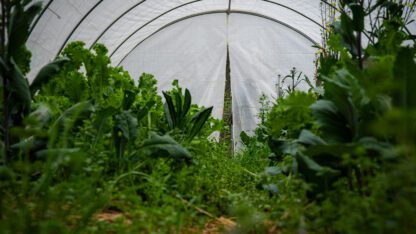Hurricane Helene has not only caused damage to Georgia homes, schools and cars, but to the state’s agricultural industry as well.
The University of Georgia College of Agricultural and Environmental Sciences (CAES) announced on Thursday that the estimated cost of lost crops and farm recovery, as well as losses for workers and agricultural support businesses, will amount to a $6.46 billion hit to the state economy.
And that is just an early estimate.
The estimate comes from a preliminary report by CAES. Based projections by UGA commodity analysts, Georgia Forestry Commission foresters and a model of the state’s economy all served as factors for determining the estimate.
Helene is the third named storm to hit Georgia in roughly over a year, causing issues to farm and agricultural workers who are already fighting against stagnant commodity prices.
“We depend on our farmers and timber growers to provide the food and fibers we use every day, and that drives our economy as part of Georgia’s No. 1 industry,” said Georgia Gov. Brian Kemp at a press conference on Thursday.
“Following the immense losses caused by Hurricane Helene, and with Hurricane Milton possibly bringing further impacts to our state, I’m urging all of our local, state and federal partners to join efforts in bringing them relief,” he added.
Georgia’s congressional delegation led by Democratic U.S. Sen. Jon Ossoff and Republican U.S. Rep. Austin Scott is pushing for disaster relief for farmers in the Southeast.
According to CAES, the agriculture industry contributes more than $83 billion to the state’s economy annually and employs more than 320,000 residents.
Nearly two weeks after the hurricane, many farmers are still cleaning up and assessing the damage. Downed trees, destroyed crops and storm damage can hurt future produce of pecan, peach and citrus trees that did survive.
“We’ve seen agricultural producers across the state dealing with power loss and property damage, both of which have short- and long-term effects on their crops and livelihood,” said Nick Place, dean of UGA CAES.
“In the coming weeks and months, it will be critical that we do all we can to support Georgia producers as they navigate lost income and determine the next steps forward in their operations,” he added.
WABE environmental reporter Emily Jones contributed to this report.









